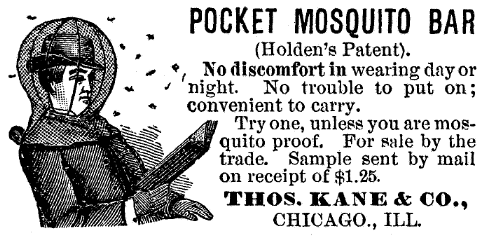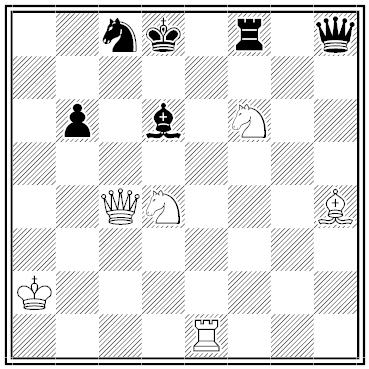Author: Greg Ross
Name-Dropper
Letter to the Times, March 10, 1950:
Sir,
I should like to place on record that at my son’s baptism today there was present one lady whose father, born in 1794, had fought under Wellington in the Peninsular War.
If this boy or others of my children live the allotted 70 years they will be able to claim to be among the very few people who in 2020 will say: ‘I had a friend once who told me how cross her father had been at the postal delays when he was in Spain with Wellington 200 years ago.’
I am, Sir, your obedient servant,
P.J.M. Rous
In a Word
xenodochiophobia
n. fear of (or worry about) hotels
Art historian Bernard Berenson offered this word in his 1952 memoir Rumour and Reflection:
I invented it long ago to designate the sinking feeling that in my travels often overcame me: of fear lest the inn or hotel at which we were to lodge would be sordid, would not let me have the promised apartment; that my bedroom would have the wrong proportions, mulling or flattening me out of my normal shape and squeezing me out of my own way of breathing; that the lights would be glaring and no reading lamp by my bed; that there would be sharp or clattering sounds outside, or bad smells without or within. Motoring in the Vendee or Poitou, in Spain or Greece as evening darkened, tired or even exhausted, I would wish the destination farther and farther away, for fear of what I should find when I reached it.
When William Tazewell mentioned the word in a 1989 travel article in the New York Times, reader Louis Jay Herman wrote to add “a few more suggested contributions to the Hellenizing of the travel language”:
xenoiatrophobia
n. fear of having to cope with a foreign doctor
xenonosocomiophobia
n. fear of finding yourself in a foreign hospital
xenokleptophobia
n. fear of foreign pickpockets
hypselotimophobia
n. fear of high prices
And cacohydrophobia, loosely translatable as Can I drink what comes out of the tap in this joint?
Buzz Off
An advertisement from The Atlantic Monthly, 1884:

The gloves, presumably, are not included.
High Praise

John Haberle’s 1889 trompe l’oeil masterpiece U.S.A. was such a faithful representation of a U.S. greenback that one could read the ironic government warning on the bill:
“Counterfeiting, or altering this note, or passing any counterfeit or alteration of it, or having in possession any false or counterfeit plate or impression of it, or any paper made in imitation of the paper on which it is printed, is punishable by $5000 fine or 15 years at hard labor or both.”
More than one viewer took it for an actual bill. When the painting was installed at the Art Institute of Chicago, the art critic of The Chicago Inter-Ocean objected: “There is a fraud hanging on the Institute walls. … It is that alleged still life by Haberle [in which] a $1 bill and the fragments of a $10 note have been pasted on canvas. … That the management of the Art Institute should hang this kind of ‘art’ even though it were genuine, is to be regretted, but to lend itself to such a fraud … is shameful.”
Haberle immediately took a train to Chicago and stood by while experts scrutinized the work through lenses, rubbed off paint, and declared it a genuine work of imitative art. The critic issued a public apology, acknowledging that others, including “Eastman Johnson, the dean of American figure and genre painters”, had also been taken in by Haberle’s works.
Ahem
A lady wishes to borrow One Hundred Pounds. The Security, though personal, may probably be very agreeable to a single Gentleman of spirit. Every particular will be communicated with Candour and Sincerity, where confidence is so far reposed as to give the real Name and Address of the party willing to oblige the Advertiser. Gentlemen of real Fortune and liberal Sentiments, and those only, are requested to address a line to Y. N. at Mr Dyke’s, Cross Street, Long-Acre.
— Morning Post, Dec. 15, 1775
The Leaning Tower Illusion

These images are identical, yet the tower on the right appears to lean more. Why?
Frederick Kingdom, Ali Yoonessi, and Elena Gheorghiu of McGill University discovered this effect in 2007. Normally parallel towers viewed from below appear to converge with distance; because that doesn’t happen here, the brain infers that the towers are diverging.
Oops

Astrologer William Lilly managed to torpedo his own reputation. Nettled at rumors abroad in London, he published this advertisement in the Perfect Diurnal of April 9, 1655:
Whereas there are several flying reports, and many false and scandalous speeches in the mouth of many people in this City, tending unto this effect, viz., that I, William Lilly, should predict or say there would be a great fire in or near the Old Exchange, and another in St. John’s Street, and another in the Strand, near Temple Bar, and in several other parts of the City. These are to certify the whole City that I protest before Almighty God that I never wrote any such thing, I never spoke any such word, or ever thought of any such thing, of any or all of these particular places or streets, or any other parts. These untruths are forged by ungodly men and women to disturb the quiet people of the City, to amaze the nation, and to cast aspersions and scandals on me.
He should have held his tongue — the Great Fire of London broke out on Sept. 2, 1666, and consumed more than 13,000 houses, fulfilling the prophecy that Lilly had disclaimed.
“He must have misread the stars,” wrote Walter George Bell in Fleet Street in Seven Centuries. “Not to have forecasted the fire would not have mattered; but to have prophesied that it would not take place! The fool! the abject, intolerable fool!”
Unquote
“The opinions that are held with passion are always those for which no good ground exists; indeed the passion is the measure of the holder’s lack of rational conviction.” — Bertrand Russell
Hole Hearted

Martin Gardner called this the proudest puzzle of his own devising. When the pieces on the left are rearranged as on the right, a hole appears in the center of the square. How is this possible?
“I haven’t the foggiest notion of how to succeed in inventing a good puzzle,” he told the College Mathematics Journal. “I don’t think psychologists understand much either about how mathematical discoveries are made. … The creative act is still a mystery.”

